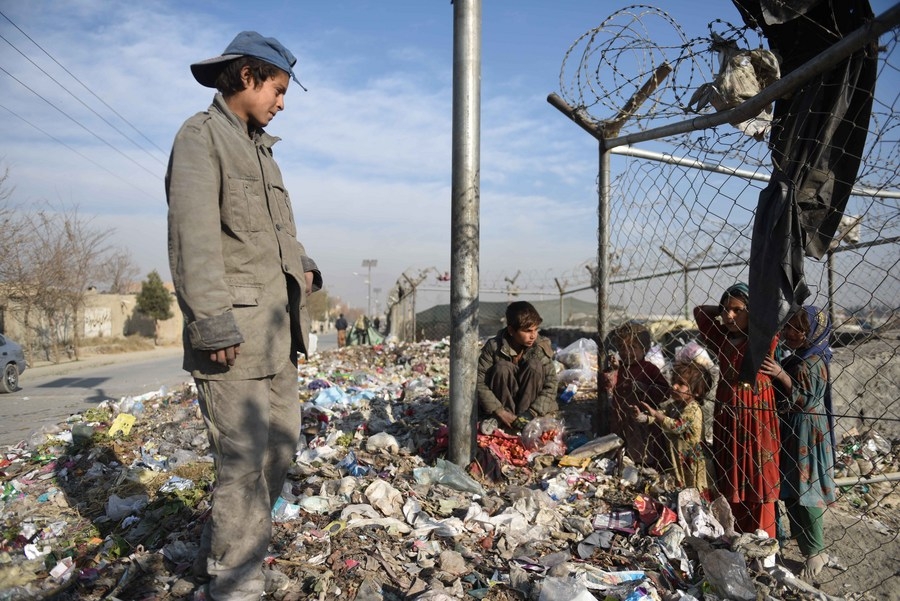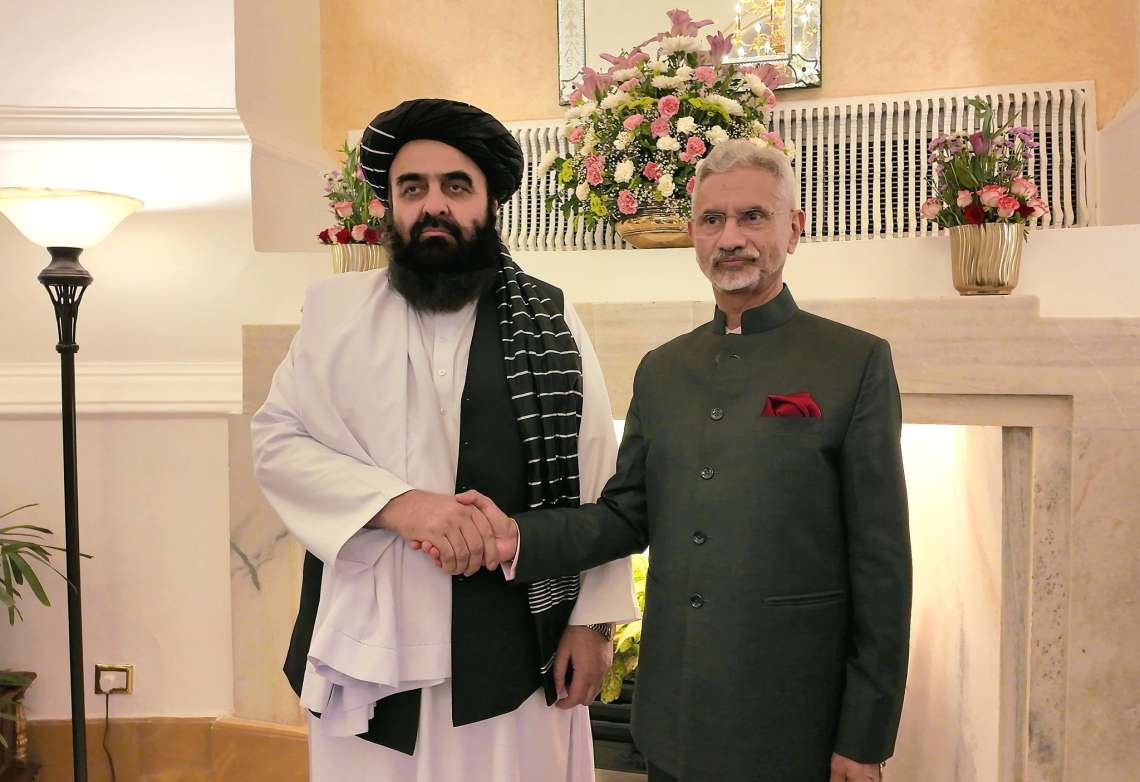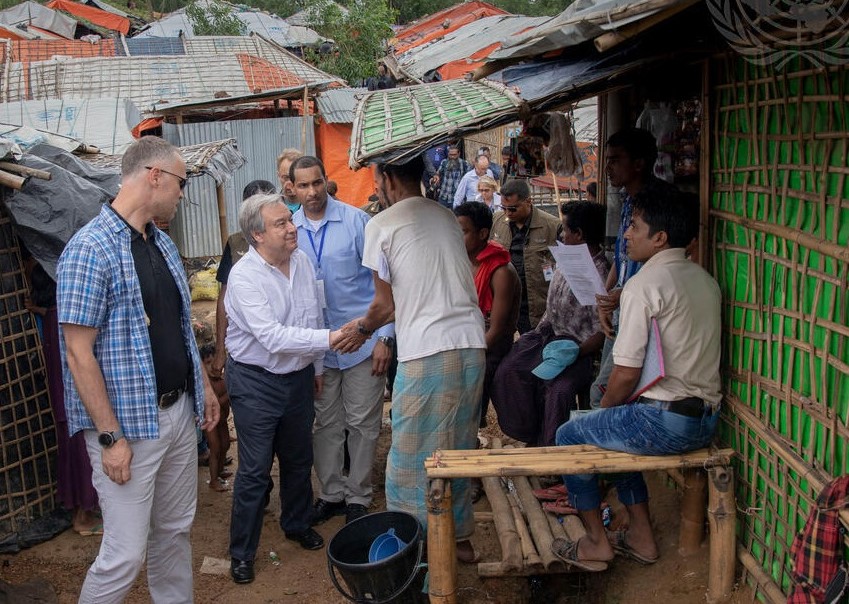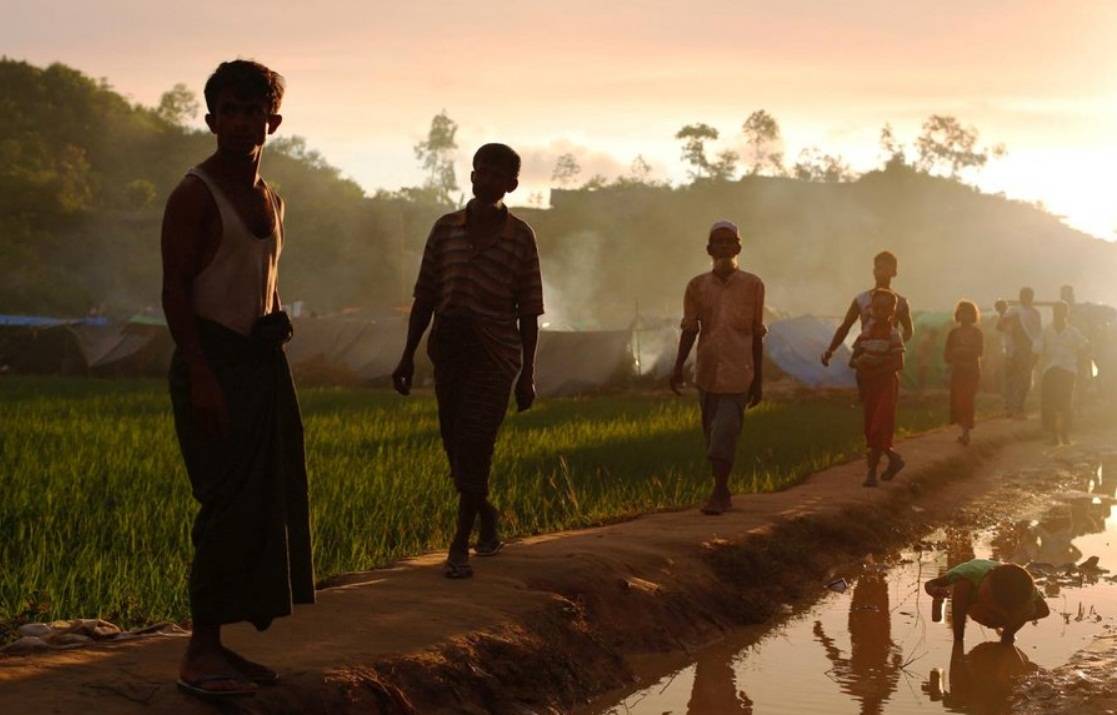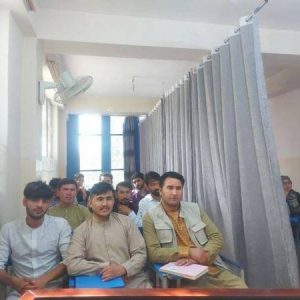With regard to the dire humanitarian situation, Afghanistan needs nearly $3.2 billion in aid, but just about $1.1 billion has been deployed so far, as per the UN estimates….reports Kavya Dubey
As the illusion of the Taliban “government”, which included some internationally designated terrorists, fell apart, and Afghanistan’s ethnic and regional fault lines lay bare, factions of Taliban vie for power in this basket case.
After the Doha Accord, the US-Taliban peace deal of February 2020 that formalised the end of the 20-year war in Afghanistan, appeared to be going defunct, the Taliban accused the US of not going by the agreement, whereby it would engage with the UN to remove Taliban members from the sanctions list.
Despite the pomp around US’ handover of Afghanistan to a ‘changed’ Taliban, little thought seems to have been spared to Pakistan in this context, with its military and nuclear potency and its tendency to stoke terrorism.
And despite the US’ withdrawal from the region, it banks on cooperation with Pakistan for its interests.
However, with respect to the hitherto abandoned Afghanistan, the country is plunging deeper in dire economic straits. With the Taliban not being recognised internationally, reviving Afghanistan’s economy is becoming increasingly difficult.
With escalating inflation and the US freezing $9.5 billion in Afghan reserves, World Bank and IMF having withdrawn their aid and funding programmes for Afghanistan, the war-ravaged country is left a basket case.
However, notwithstanding the dire economic conditions, and given the resource potential of Afghanistan, the region cannot be truly abandoned altogether. China’s Belt and Road Initiative to usher in with development there and in exchange, exploit its massive mineral resources worth $3 trillion, is a looming possibility.
Besides, the investment-seeking, cash-strapped Taliban government has finalised agreements with Chinese, British, and Turkish companies to develop large-scale mining operations.
However, China has a reason to not rush headfirst into an unstable Afghanistan as the extraction and commercial exploitation of its most valuable mineral resource, lithium, is a process that can take up to 16 years and cannot be a short-term project.
For such an investment-oriented development to take place, negotiation between Taliban and a willing country is inevitable, but even then, the humanitarian catastrophe is the elephant in the room that cannot be overlooked for ever.
Afghanistan’s post-war rebuilding efforts began before the US declared war on terror there in 2001 and retracted in 2021 after the Doha Accord. After Soviet invasion in 1978, Afghans became the largest protracted refugees in the world.
More than 10 million have fled Afghanistan in the anticipation of impending violence. About six million went to Pakistan (which it is intent on returning) and Iran. Besides, more than 1.2 million people have been internally displaced in Afghanistan due to terrorist invasion and expected atrocities.
With such scale of displacement comes the crisis of housing and managing the population and the challenge of sustaining the refugee population with the most basic amenities such as water supply.
As per the UN estimates, there is conflict in 31 out of 34 provinces in Afghanistan, after an expenditure of $650 billion fighting Al Qaeda and the Taliban since 2001. The donor countries have additionally contributed $150 billion in development aid, most of which did not end up for its purpose but evaporated to corruption.
However, interestingly, in a recent and unprecedented development, Afghanistan’s currency outperformed several other currencies in the world. The reason behind tis is understood to be humanitarian aid and increasing trade with Asian neighbours.
However, with regard to the dire humanitarian situation, Afghanistan needs nearly $3.2 billion in aid, but just about $1.1 billion has been deployed so far, as per the UN estimates.
Given these dynamics and the silence around it, a Taliban-run Afghanistan will direct a geopolitical realignment. This will also impact India’s relations with major powers, considering terrorism emanating from this region.
It is hence a time when waiting and watching is the most pragmatic way forward.
ALSO READ: US warns Taliban on terror


